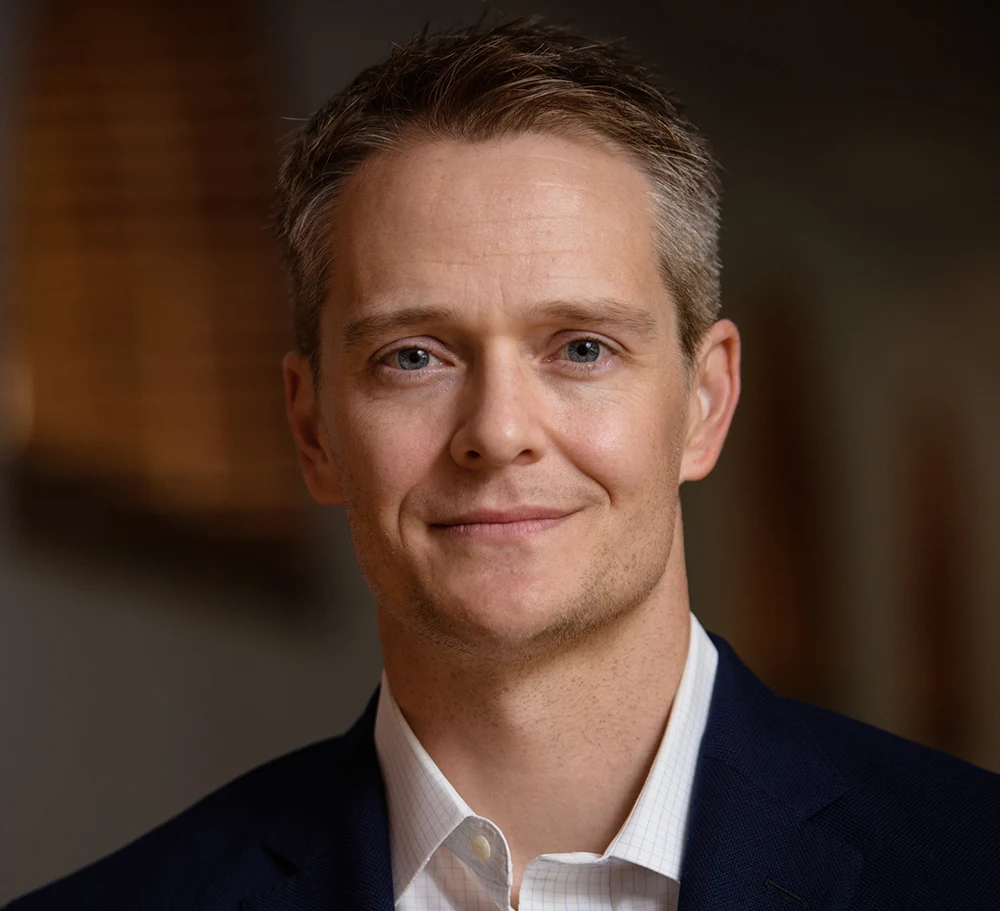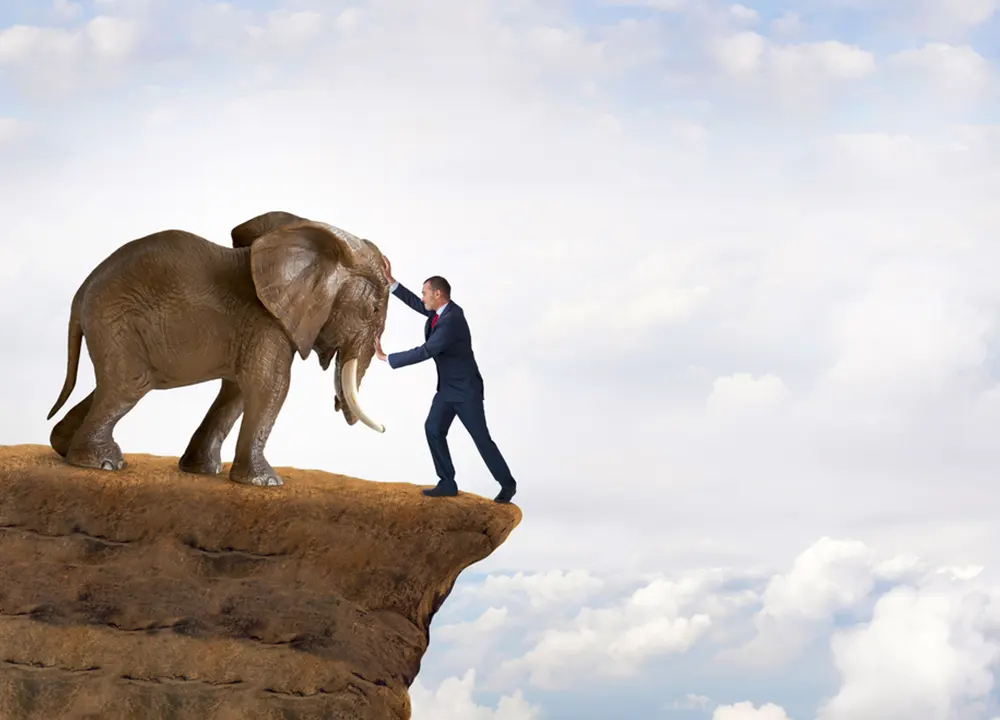Up next....
Two Creators Working Together Are Better Than One
By Daniel Butcher
There are many examples of creative and productive partners, including John Lennon and Paul McCartney, the Coen brothers, Warren Buffett and Charlie Munger, Steve Jobs and Steve Wozniak, William Procter and James Gamble, Bill Hewlett and Dave Packard; the list goes on and on.
Academy of Management Scholar Bess Rouse of Boston College said that people who create together engage in intimate creative interactions that lead to a shared interpersonal boundary—“I created it” becomes “We created it.” This shared interpersonal boundary influences creativity by forming a closed, safe space in which duos can explore divergent ideas and navigate creative blocks.
“We know a lot about team creativity, and we know a lot about individual creativity, and one of the things I was really interested in exploring is this idea of two people working together and the balance that happens in that space,” Rouse said. “You look at a lot of successful, creative people in the world, and they’re often working in pairs, and it’s either a very explicit pair or a well-known person who works with a shadow person.
“It might be a husband and wife, or it might be a more dominant person and a secondary person who are working together,” she said. “That creative space is really special, because you can challenge that person and they’re trusted, and it’s in this bounded space where you develop the sense of a shared interpersonal boundary, where you feel very connected to this other person, and so they’re able to challenge each other and get some of the benefits of having an outsider voice.
“Yet the trust and the support are built into the relationship as well, and that seems to be a really powerful dynamic for developing really high-quality creativity and sustaining it over time.”
An example that Rouse cited in an Academy of Management Review article is from Michael Lewis’s book, The Undoing Project: A Friendship That Changed Our Minds, on social psychologists Daniel Kahneman and Amos Tversky.
“They were social psychologists very well known for doing their work together, and Lewis does a really good job of fleshing out the sorts of tensions in that kind of relationship, but they’re also a very powerful example of two people collaborating and working together successfully and bringing out the best in each other over time,” Rouse said.
-
Daniel Butcher is a writer and the Managing Editor of AOM Today at the Academy of Management (AOM). Previously, he was a writer and the Finance Editor for Strategic Finance magazine and Management Accounting Quarterly, a scholarly journal, at the Institute of Management Accountants (IMA). Prior to that, he worked as a writer/editor at The Financial Times, including daily FT sister publications Ignites and FundFire, Crain Communications’s InvestmentNews and Crain’s Wealth, eFinancialCareers, and Arizent’s Financial Planning, Re:Invent|Wealth, On Wall Street, Bank Investment Consultant, and Money Management Executive. He earned his bachelor’s degree from the University of Colorado Boulder and his master’s degree from New York University. You can reach him at dbutcher@aom.org or via LinkedIn.
View all posts
Up next....
Why Some People with Mental Disorders Thrive as Entrepreneurs
By Daniel Butcher
Symptoms and traits associated with certain mental disorders, including attention deficit/hyperactivity disorder (ADHD), bipolar disorder, dyslexia, and autism, may help entrepreneurs and other businesspeople succeed, noted Academy of Management Scholar Dean Shepherd of the University of Notre Dame.
Shepherd said that conditions that might be seen as a negative, particularly in employment, can sometimes be an advantage in entrepreneurship.
“Some mental disorders are perceived to negatively impact reliability in traditional nine-to-five employment but can actually be an asset in entrepreneurship,” Shepherd said. “Research has found that people with dyslexia tend to have weaker aspects in their left hemisphere of their brain, but their right hemisphere is stronger, and so therefore they can enter entrepreneurship and be successful in it.
“We have the statistics to say that the people with dyslexia are more likely to become entrepreneurs than the general population—in fact, it’s true for many groups who feel like they’re constrained in being promoted in corporate employment turned to self-employment or entrepreneurship,” he said.
“That includes minorities, marginalized groups, and people with all sorts of disabilities, for example, women and immigrants, because they feel like they have constraints or face discrimination in the workplace and that they don’t have those as much in entrepreneurship.”
Research has found that people with ADHD are more likely to become entrepreneurs.
“People with ADHD are more prepared to engage in risk taking, they’re more proactive, and they’re more innovative, and we also found that people with autism are actually getting used by companies engaging in software testing, because they have some advantages in being able to test software,” Shepherd said.
“Entrepreneurship may cause some mental disorders through high stress or loss when a business fails, which can be an important point to consider when deciding on your career path, but people with disorders are also drawn to entrepreneurship,” he said.
-
Daniel Butcher is a writer and the Managing Editor of AOM Today at the Academy of Management (AOM). Previously, he was a writer and the Finance Editor for Strategic Finance magazine and Management Accounting Quarterly, a scholarly journal, at the Institute of Management Accountants (IMA). Prior to that, he worked as a writer/editor at The Financial Times, including daily FT sister publications Ignites and FundFire, Crain Communications’s InvestmentNews and Crain’s Wealth, eFinancialCareers, and Arizent’s Financial Planning, Re:Invent|Wealth, On Wall Street, Bank Investment Consultant, and Money Management Executive. He earned his bachelor’s degree from the University of Colorado Boulder and his master’s degree from New York University. You can reach him at dbutcher@aom.org or via LinkedIn.
View all posts
Up next....
Disabled U.S. Veterans Are Finding Success as Entrepreneurs
By Daniel Butcher
A higher percentage of disabled U.S. military veterans become entrepreneurs compared to the general population due to their experiences both before and after getting injured, according to research by Academy of Management Scholar Dean Shepherd of the University of Notre Dame and his colleagues. Most of the disabled veterans returning from Afghanistan and Iraq who became entrepreneurs did so for two main reasons.
“The first reason is they felt that following orders were the things that almost got them killed, and what they wanted to do now was to run their own businesses where they were the boss and they weren’t following someone else’s orders,” Shepherd said. “There’s a mental aspect here that causes them to say, ‘I cannot work with someone who’s telling me what to do—I must have that kind of freedom and independence.’
“And in a related issue, they spent so much time in hospitals being told what to do by doctors and nurses that, again, they had this strong desire to become entrepreneurs because they could follow their own orders,” he said. “And the other thing was, because of their disabilities, they still had a lot of medical work that they needed to go on, but also sometimes they’ve had traumatic headaches and different symptoms, which meant that they couldn’t be regular about when they could attend and perform work.
“And under those circumstances, an entrepreneurial career gives them the freedom and flexibility about when they work, and they can work when they’re feeling good—they can work around their medical visits and things like that—and so that’s why entrepreneurship was a good career for those people.”
-
Daniel Butcher is a writer and the Managing Editor of AOM Today at the Academy of Management (AOM). Previously, he was a writer and the Finance Editor for Strategic Finance magazine and Management Accounting Quarterly, a scholarly journal, at the Institute of Management Accountants (IMA). Prior to that, he worked as a writer/editor at The Financial Times, including daily FT sister publications Ignites and FundFire, Crain Communications’s InvestmentNews and Crain’s Wealth, eFinancialCareers, and Arizent’s Financial Planning, Re:Invent|Wealth, On Wall Street, Bank Investment Consultant, and Money Management Executive. He earned his bachelor’s degree from the University of Colorado Boulder and his master’s degree from New York University. You can reach him at dbutcher@aom.org or via LinkedIn.
View all posts
Up next....
Entrepreneurs’ Taboo F-Word
By Daniel Butcher
There’s an F-word that used to be taboo among entrepreneurs and researchers who study them: failure.
Academy of Management Scholar Dean Shepherd of the University of Notre Dame said that when he was a doctoral student at Bond University in Australia teaching entrepreneurship to undergraduates and MBAs, the assigned texts on entrepreneurship rarely mentioned failure.
“On the one instance that one of them did, the textbook said, ‘Entrepreneurs don’t fail—businesses do, but entrepreneurs are just motivated to try again,’” Shepherd said. “Then one day, I got a phone call from my father, and the family business that he’d created and run as long as I’d been alive was failing badly, and I said, ‘You have to close it down,’ and that caused him and me great distress and anxiety.
“And so it felt funny going back into the classroom and trying to encourage everyone to become an entrepreneur and not be able to say, ‘There is a chance that it’ll fail,’ and also not give them the tools to say that, if you do fail, this is how you cope with it,” he said. “I waited for quite a few years before I wrote a paper about it, and I went into the psychology literature on bereavement and grief, because there, psychologists had tools to help people overcome grief.
“And I thought, ‘My dad’s reaction wasn’t as bad as losing a loved one, but in some ways, it’s still grief, where grief is the negative emotional reaction to the loss of something important.”
Some entrepreneurs even call the business they start—or help launch—their baby. Their ventures are entwined with their own identities.
“When people ask them, ‘What do you do?’ they say, ‘I’m an entrepreneur,’” Shepherd said. “Are you still an entrepreneur once your business fails?
“And so the psychology literature really gave us some good tools to say that maybe you do a bit of grief work; you talk it through with someone, and as you come up with a story for why it failed, then it makes it a little less painful,” he said. “The negative emotional reaction can diminish.”
-
Daniel Butcher is a writer and the Managing Editor of AOM Today at the Academy of Management (AOM). Previously, he was a writer and the Finance Editor for Strategic Finance magazine and Management Accounting Quarterly, a scholarly journal, at the Institute of Management Accountants (IMA). Prior to that, he worked as a writer/editor at The Financial Times, including daily FT sister publications Ignites and FundFire, Crain Communications’s InvestmentNews and Crain’s Wealth, eFinancialCareers, and Arizent’s Financial Planning, Re:Invent|Wealth, On Wall Street, Bank Investment Consultant, and Money Management Executive. He earned his bachelor’s degree from the University of Colorado Boulder and his master’s degree from New York University. You can reach him at dbutcher@aom.org or via LinkedIn.
View all posts
Up next....
Resilient Entrepreneurs Don’t Shy Away from Failure
By Daniel Butcher
Some of the most common mistakes that entrepreneurs make are focusing too much on past successes, pretending that hard work always results in success, and not learning from failure, according to Academy of Management Scholar Dean Shepherd of the University of Notre Dame.
Shepherd said that the shocking closure of his own father’s business was what inspired him to study the effects of entrepreneurial failures. He described loss orientation as communicating about the disappointing or traumatic event and restoration orientation as thinking about other things, including next steps.
“It was a family business in residential construction formed around 1965—I am not sure how large it was, but [it built] maybe 100 houses per year, and there were no full-time employees; my father used a lot of sub-contractors,” Shepherd said. “It started to experience some difficulties approximately one year before he closed it down.
“He was very much a restoration-orientation person, so he refused to talk about it, just like a typical Australian male, and he and I never discussed it,” he said. “He never engaged in loss orientation, [grieving the] loss of his business; he never oscillated between loss orientation and restoration orientation, and so he suffered for a long time as a result of that.
“I did research on scientists working in Germany, and when their projects failed, those that were able to oscillate between the two, loss orientation and restoration orientation, were the ones who were most successful at processing the setback or loss, bouncing back, and moving forward.”
Shepherd cited the work of Eric Ries, an entrepreneur and author of The Lean Startup: How Today’s Entrepreneurs Use Continuous Innovation to Create Radically Successful Businesses, as emblematic of a strain of entrepreneurship that doesn’t shy away from failure but actually highlights the need for it to inform the organization’s plans, budgeting, and initiatives.
“A lot of entrepreneurs now, including the author of The Lean Startup, are trying to think about different projects like real options, so they’re probes into an uncertain environment, and if we have many of them, then we gain information, and as we get that information, we can kill some projects and redeploy the resources to the ones that show promise,” Shepherd said. “That’s a way to try and manage the uncertainty, and it really has failure as part of the process, because we must terminate those initiatives that don’t show promise in order for this strategy to work.
“If we have an anti-failure bias and we choose not to terminate them, or we take longer to make the decision to discontinue them, then the downside losses actually start to increase,” he said. “The best examples are my dad, who struggled to process failure, and the studies of the German scientists, some of whom were able to deal with failure in a productive way.”
-
Daniel Butcher is a writer and the Managing Editor of AOM Today at the Academy of Management (AOM). Previously, he was a writer and the Finance Editor for Strategic Finance magazine and Management Accounting Quarterly, a scholarly journal, at the Institute of Management Accountants (IMA). Prior to that, he worked as a writer/editor at The Financial Times, including daily FT sister publications Ignites and FundFire, Crain Communications’s InvestmentNews and Crain’s Wealth, eFinancialCareers, and Arizent’s Financial Planning, Re:Invent|Wealth, On Wall Street, Bank Investment Consultant, and Money Management Executive. He earned his bachelor’s degree from the University of Colorado Boulder and his master’s degree from New York University. You can reach him at dbutcher@aom.org or via LinkedIn.
View all posts
Up next....
Successful Entrepreneurs Leverage Knowledge and Motivation
By Daniel Butcher
Successful entrepreneurs focus on what they know best and care most about when brainstorming and evaluating business ideas, according to Academy of Management Scholar Dean Shepherd of the University of Notre Dame.
“Entrepreneurs often say, ‘Where do I look for an opportunity?’ Now, I always try and say, ‘We’ll look internally first at your own history,’” Shepherd said. “‘What is unique about you? What unique knowledge do you have?’
“My path is unique, just like every person’s path is unique, and it’s given me knowledge that other people don’t have,” he said. “If I can think about things from that perspective, then I’m more likely to come up with an opportunity that other people haven’t thought of in the past.
“In thinking about it that way, I’m more likely to see opportunities related to my motivation, something that I’m passionate about, and so opportunities are often identified at the intersection of my knowledge and my motivation.”
People who are knowledgeable in a particular field are better equipped to spot signals of potential opportunities in that area. Experienced entrepreneurs can also gauge the chances of success of a particular idea, even if it’s just a rough estimate, to decide whether it’s worth pursuing.
“If I’m highly motivated by certain things, then I’m more likely to see signals in the environment that relate to that motivation, and so it’s the combination of those two that allows me to identify opportunities,” Shepherd said. “I also evaluate opportunities in a similar way.
“I say to myself, ‘Do I have the knowledge, the skills, and the ability to be able to execute this opportunity? Is it feasible?’” he said. “And I also asked myself, ‘Is it desirable? Is it something that I want to do? If I do it and exploit this opportunity, does it give me the things that I want to have?
“And so it’s really that intersection of knowledge and motivation that is the how do we identify opportunities, and also whether we want to exploit those opportunities or not and what would be required to do so.”
-
Daniel Butcher is a writer and the Managing Editor of AOM Today at the Academy of Management (AOM). Previously, he was a writer and the Finance Editor for Strategic Finance magazine and Management Accounting Quarterly, a scholarly journal, at the Institute of Management Accountants (IMA). Prior to that, he worked as a writer/editor at The Financial Times, including daily FT sister publications Ignites and FundFire, Crain Communications’s InvestmentNews and Crain’s Wealth, eFinancialCareers, and Arizent’s Financial Planning, Re:Invent|Wealth, On Wall Street, Bank Investment Consultant, and Money Management Executive. He earned his bachelor’s degree from the University of Colorado Boulder and his master’s degree from New York University. You can reach him at dbutcher@aom.org or via LinkedIn.
View all posts
Up next....
When Entrepreneurs Can’t Acknowledge Failure, Disaster Strikes
By Daniel Butcher
Elizabeth Holmes, who was convicted of fraud for lying about the effectiveness of the blood-testing product of her biotechnology company, Theranos, is a cautionary tale illustrating a potential downside of entrepreneurship. Unable to deal with the failure of her company’s blood-testing methods, she just plowed ahead, refusing to acknowledge the disappointing results or telling any of the investors—or anyone else—that the tests weren’t working. She pretended like everything was okay, continued to collect investor money, and built up the biotech startup to a $9 billion valuation.
Academy of Management Scholar Dean Shepherd of the University of Notre Dame said that it’s common for entrepreneurs to deal with failure poorly, but investors failed to effectively scrutinize Theranos.
“A lot of the stakeholders there were maybe willfully ignorant—they wanted to believe her,” Shepherd said. “They didn’t ask probing questions; they ignored the negative signals, which is what we call a confirmation device.
“They look for information that confirms their opinions, and they discount or ignore information that disconfirms them, and so in many ways, she was negligent, but they were also negligent,” he said.
Sometimes entrepreneurs can’t even acknowledge failure to themselves, much less publicly, because their entire identity is wrapped up in success. One major failure could crack that self-image.
Shepherd said that job loss—or the failure of one’s business—can devastate a person’s sense of identity. He wrote about his research findings related to such phenomena in Hitting Rock Bottom After Job Loss: Bouncing Back to Create a New Positive Work Identity.
“Failure can have a huge impact on you psychologically, because your identity is quite often highly related to the things that you do for work, and when you lose that identity, you go into a crisis or a freefall, because you don’t know who you are anymore,” Shepherd said. “And if you don’t know who you are, you don’t know how to socially act, and it can be a very dangerous situation.”
-
Daniel Butcher is a writer and the Managing Editor of AOM Today at the Academy of Management (AOM). Previously, he was a writer and the Finance Editor for Strategic Finance magazine and Management Accounting Quarterly, a scholarly journal, at the Institute of Management Accountants (IMA). Prior to that, he worked as a writer/editor at The Financial Times, including daily FT sister publications Ignites and FundFire, Crain Communications’s InvestmentNews and Crain’s Wealth, eFinancialCareers, and Arizent’s Financial Planning, Re:Invent|Wealth, On Wall Street, Bank Investment Consultant, and Money Management Executive. He earned his bachelor’s degree from the University of Colorado Boulder and his master’s degree from New York University. You can reach him at dbutcher@aom.org or via LinkedIn.
View all posts
Up next....
Crowdfunding Reshaped the Global Economy
By Daniel Butcher
Crowdfunding platforms such as GoFundMe, through which hundreds of millions of people have donated more than $30 billion for mostly charitable causes since it launched in 2010, also provide nonfinancial support via social media. For example, in 2024 alone, GoFundMe users drove support for causes they care about through 55 million-plus shares across various social-media channels and via email.
Academy of Management Scholar Dean Shepherd of the University of Notre Dame said that crowdfunding has opened the world to a new way of doing good. This form of support for micro-entrepreneurs’ mini-projects affects the global economy.
“In some ways, it’s like the economy itself has these little probes into an uncertain environment, and some are going to fail, and some are going to gain traction,” Shepherd said. “And all of that’s a good thing, because it creates innovation, so we’re really just pitching out a whole lot of different potential opportunities; some are going to fail, and that’s perfectly fine, but some are going to be successful, and those successful ones may actually lead to something very interesting.
“Crowdfunding was quite an innovation,” he said. “It came from a change in regulation that actually freed up a lot of little bits of money for little entrepreneurs who may actually become highly successful entrepreneurs.
“It could be one of the greatest innovations to allow for more everyday entrepreneurship, and future superstars may actually even come from some of those smaller programs and initiatives that get off the ground thanks to crowdfunding.”
-
Daniel Butcher is a writer and the Managing Editor of AOM Today at the Academy of Management (AOM). Previously, he was a writer and the Finance Editor for Strategic Finance magazine and Management Accounting Quarterly, a scholarly journal, at the Institute of Management Accountants (IMA). Prior to that, he worked as a writer/editor at The Financial Times, including daily FT sister publications Ignites and FundFire, Crain Communications’s InvestmentNews and Crain’s Wealth, eFinancialCareers, and Arizent’s Financial Planning, Re:Invent|Wealth, On Wall Street, Bank Investment Consultant, and Money Management Executive. He earned his bachelor’s degree from the University of Colorado Boulder and his master’s degree from New York University. You can reach him at dbutcher@aom.org or via LinkedIn.
View all posts
Up next....
Entrepreneurs Face Several Dangers
By Daniel Butcher
While entrepreneurs’ success stories get most of the publicity, the dangers they face are rarely talked-about elements of entrepreneurship.
Academy of Management Scholar Dean Shepherd of the University of Notre Dame noted that professors, business-book authors, and other journalists often tout the benefits of entrepreneurship without talking about its downside: Entrepreneurs often struggle and fail, sometimes with bad consequences for themselves, their colleagues, their loved ones, and even society.
“For quite a while, I’ve been researching entrepreneurs losing their business and people working on projects at an entrepreneurial firm when those projects fail,” Shepherd said. “The dark side of entrepreneurship is the negative emotional and psychological costs.
“The downside of entrepreneurship is the loss of your capital, your money, your personal finances,” he said. “And then there’s the destructive side—we always assume that entrepreneurship is doing good for other people, but it may not be.
“There might be some people who are greedy and engage in entrepreneurship that has a net destruction of wealth, so that really actually harms the natural environment or harms other people in order to just benefit themselves, or they didn’t mean to do it, but it just worked out that way.”
Opportunities exist in environments of uncertainty, so failure is going to be part of entrepreneurial endeavors. Entrepreneurs—and the people writing about them—should ask: What about the downside risk?
“Everyone says entrepreneurship is so good, and I do love entrepreneurship, but if we don’t understand the dark side, then how do we help entrepreneurs overcome some of the challenges they face being an entrepreneur, particularly when entrepreneurs pursue opportunities,” Shepherd said.
“We have to be able to help entrepreneurs minimize the potential losses from their action and avoid destructive entrepreneurship,” he said. “If we don’t understand why and how some people destroy societal wealth or the environment, then how are we going to be able to stop them?”
Shepherd highlighted a key question: “How are we going to be able to educate entrepreneurs to make sure that they don’t do that, and that they’re productive, rather than destructive?”
“The whole stream of my research along those lines is to try and really understand the flip side of the coin, because if you don’t understand the flip side, then you don’t understand the coin completely,” he said.
-
Daniel Butcher is a writer and the Managing Editor of AOM Today at the Academy of Management (AOM). Previously, he was a writer and the Finance Editor for Strategic Finance magazine and Management Accounting Quarterly, a scholarly journal, at the Institute of Management Accountants (IMA). Prior to that, he worked as a writer/editor at The Financial Times, including daily FT sister publications Ignites and FundFire, Crain Communications’s InvestmentNews and Crain’s Wealth, eFinancialCareers, and Arizent’s Financial Planning, Re:Invent|Wealth, On Wall Street, Bank Investment Consultant, and Money Management Executive. He earned his bachelor’s degree from the University of Colorado Boulder and his master’s degree from New York University. You can reach him at dbutcher@aom.org or via LinkedIn.
View all posts
Up next....
Dealing with a Failed Business
By Daniel Butcher
Most people’s reaction to the failure of their own business going under is like grief after the loss of a loved one. For many entrepreneurs, the best way to cope with failure is switching between talking about it and reflecting on it, according to Academy of Management Scholar Dean Shepherd of the University of Notre Dame.
Shepherd said that for some people, the more they talk about it, the worse their emotional reaction to the painful event gets. But for others, talking about their business failing can be cathartic.
“For some people, talking about failure helps them process it, but for others, dwelling on it causes the negative emotions to worsen, and that people actually need to have some periods where they can recharge their emotional batteries,” Shepherd said.
“The most recent research in that area said people actually have to oscillate between these two, a loss orientation, where you’re focusing on it, and a restoration orientation, where you’re deliberately ignoring it, not thinking about it, and start addressing secondary causes of stress, like selling the house, moving the kids from one school to another, these types of things,” he said.
“The important part is oscillating between the two, which I thought this was the weirdest thing, but I wrote a paper that ended up getting accepted in the Academy of Management Review, and then that set off quite a stream of related research.”
Shepherd then asked himself, “What happens if the organization doesn’t disappear, but the project that I’m working on does?” He worked on a paper with two coauthors about the negative emotional reactions that scientists working in Germany have when their projects fail.
“Those who are able to learn the most from the failure and those who were motivated to try again were the ones who were engaged in this oscillation process—they used both loss orientation and also restoration orientation,” Shepherd said. “They were able to learn the most and remain committed to the organization.”
-
Daniel Butcher is a writer and the Managing Editor of AOM Today at the Academy of Management (AOM). Previously, he was a writer and the Finance Editor for Strategic Finance magazine and Management Accounting Quarterly, a scholarly journal, at the Institute of Management Accountants (IMA). Prior to that, he worked as a writer/editor at The Financial Times, including daily FT sister publications Ignites and FundFire, Crain Communications’s InvestmentNews and Crain’s Wealth, eFinancialCareers, and Arizent’s Financial Planning, Re:Invent|Wealth, On Wall Street, Bank Investment Consultant, and Money Management Executive. He earned his bachelor’s degree from the University of Colorado Boulder and his master’s degree from New York University. You can reach him at dbutcher@aom.org or via LinkedIn.
View all posts













